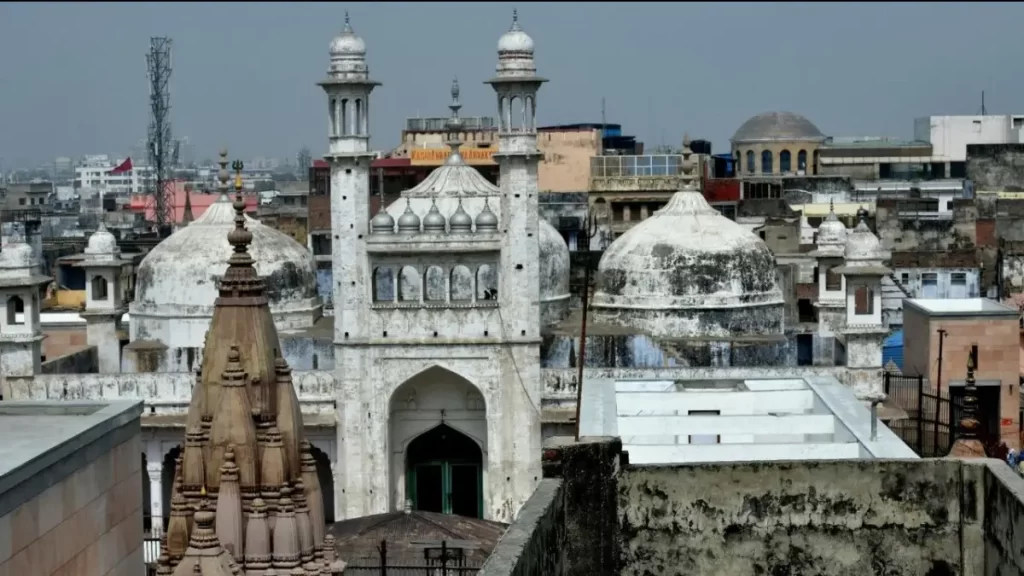Jahanvi Agarwal
The stay order on the Archaeological Survey of India’s (ASI) survey of the Gyanvapi Mosque has been extended by the Allahabad High Court till Thursday, i.e., July 27, 2023. The High Court will continue to hear arguments against the ASI survey of the grounds of the Gyanvapi mosque on Thursday.
The Allahabad High Court has scheduled the NDOH for the said matter for 27.07.2023, at 3.30 p.m.
A Varanasi court had ordered the Archaeological Study of India (ASI) to complete the study, including excavations, if necessary, by July 21 in order to ascertain whether the mosque was erected on top of a previous temple location.
On Wednesday, the Supreme Court reopened a Gyanvapi panel plea that had been mistakenly dismissed on July 24, 2023, and suspended an Archaeological Survey of India (ASI) investigation into whether a mosque had been erected on top of a temple.
The ASI survey was postponed by the Supreme Court on July 24 until July 26 at 5:00 p.m. in order to give the Masjid committee some “breathing time” to petition the High Court.
The Gyanvapi Mosque Committee has filed an appeal against the excavation, citing their concern that the old structure would collapse.
The court further asked the petitioners how they would believe the court’s decision if they couldn’t trust the ASI’s guarantees that the structure wouldn’t be harmed.
The Varanasi Court’s ruling directing the ASI to inspect the mosque grounds (apart from the wuzukhana) was challenged by the Anjuman Mosque Committee in a court filing yesterday.
The decision was made in response to a request for year-round access to worship inside Mosque grounds made by four Hindu women worshippers who are parties to a lawsuit filed before the District Court.
The Allahabad High Court highlighted “strong doubts” about the Archaeological Survey of India’s (ASI) proposed work at the Mosque grounds.
The bench of Chief Justice Pritinker Diwaker made the oral remark after the ASGI (speaking on behalf of the ASI) failed to clarify to the bench the precise methodology of the proposed survey.
Despite the ASGI’s efforts to assure the bench that it will use the Ground-penetrating radar (GPR) approach in accordance with the Varanasi Court’s directive without endangering the structure.


